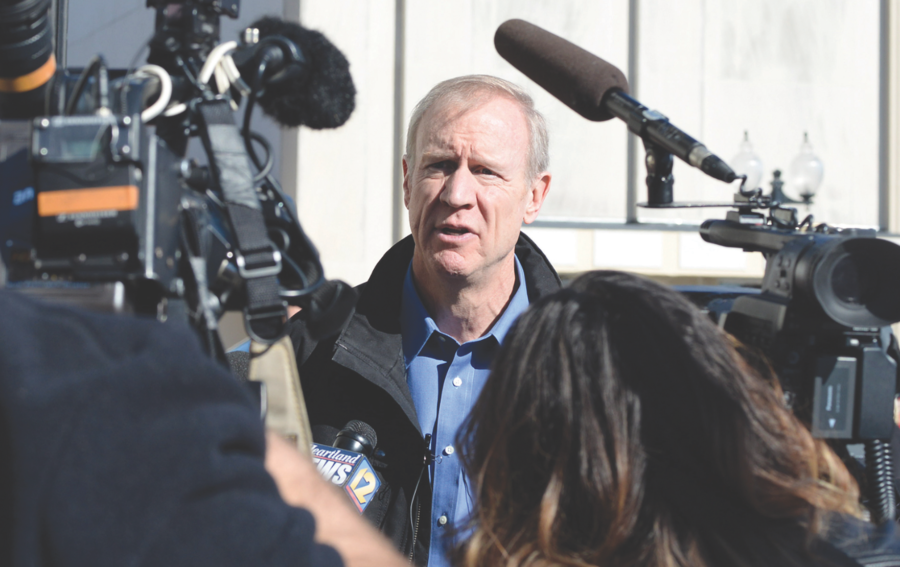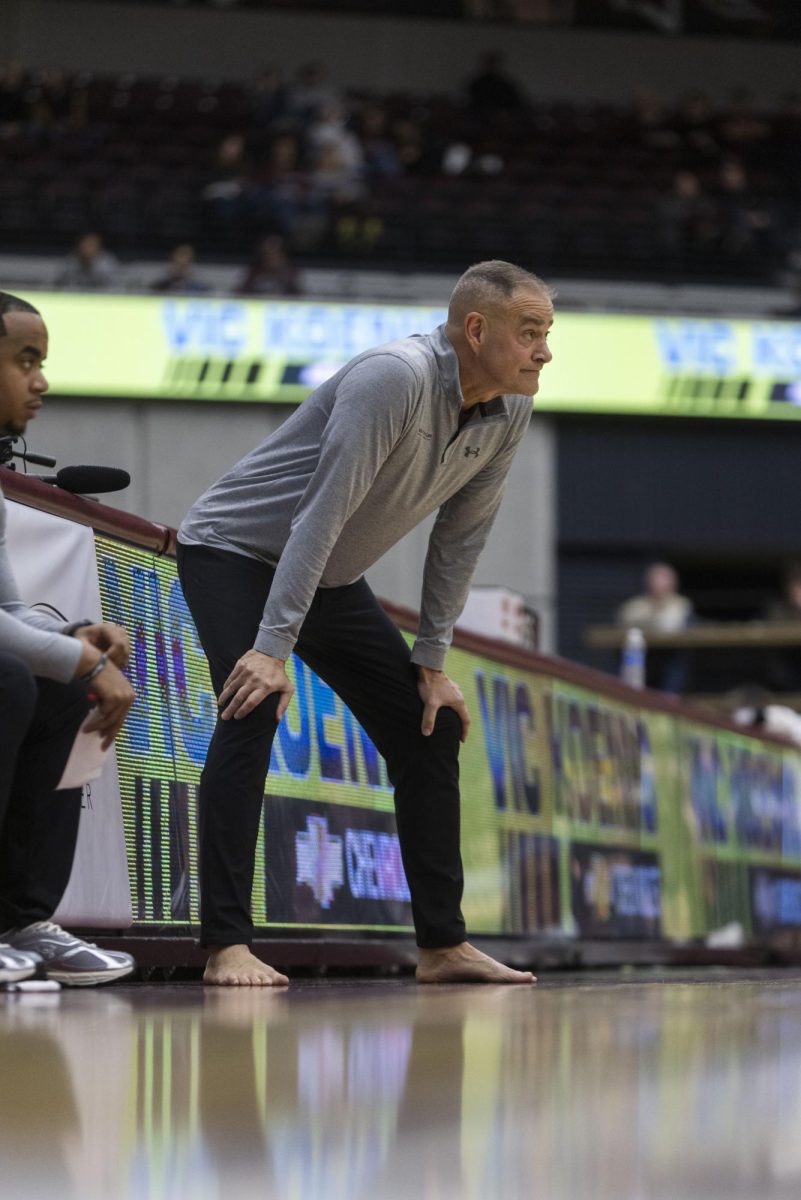Rauner says primary losses not due to his agenda
March 23, 2016
Gov. Bruce Rauner on Tuesday tried to downplay two high-profile losses during last week’s primary election, saying he does not view the results as a rejection of his pro-business, anti-union agenda.
One of the Republican governor’s defeats came in a Democratic House primary in Chicago, where Rauner allies spent millions of dollars in a failed effort to protect Rep. Ken Dunkin, who repeatedly broke with his party to side with Rauner. The other came in the central Illinois Senate Republican primary, when Sen. Sam McCann held off a Rauner-backed challenger. Rauner targeted McCann for defeat after the senator voted in favor of a union-backed bill to limit the governor’s options in stalled state-worker contract talks.
The costly, combative contests are viewed as a preview of the fall, when legislative races will pit the vast political organizations of labor and longtime Democratic House Speaker Michael Madigan against Rauner’s network of wealthy supporters.
Advertisement
MORE: Rauner, Madigan dig in after primary skirmishes
On Tuesday, Rauner contended “it’s a mistake to read much into any one election for any one candidate in the legislature,” saying “each election has its own unique characteristics, its own candidates, its own issues, its own local challenges.”
Instead, Rauner attempted to paint the results as a loss for taxpayers before noting he had some victories in a handful of lower-profile races where he backed Republicans facing primary challengers.
“This last election last week, my own view is that taxpayer lost a couple high-profile races,” he said. “That’s not totally shocking. I mean, taxpayers have been losing races in Illinois for a long time. Changing that doesn’t happen overnight. Taxpayers won a number of lower-profile but important races around the ticket, and that’s good news, and some races they might not have won in the past. So it’s part of the process.”
Rauner shot down suggestions that his losses could be interpreted as a rejection of his larger political agenda that he’s made a prerequisite to a budget deal.
The governor said voters of both parties support his push for term limits and an overhaul of how legislative districts are drawn.
“To say, ‘Well, this is a signal on two high-profile races because they went a certain way that means our turnaround efforts are not approved or not supported,’ that’s absolutely not the case,” Rauner said.
Advertisement*
Central to Rauner’s agenda are broad proposals to scale back union rights, lower operating costs for businesses by tightening workers’ compensation rules and put limits on civil lawsuits that lead to multimillion dollar judgments.
Democrats have argued those ideas should be considered separately from budget talks, but have pushed back against his proposals saying they would weaken the middle class at the benefit of corporate bosses.
Rauner’s comments came during a stop at the Illinois State Fairgrounds in support of legislation that would create a private foundation to raise funds for maintaining the grounds, an idea Rauner said would free up taxpayer money for other programs struggling without state funding.
It’s a proposal Rauner first pushed last year after he came under fire for holding the annual state fair without a full budget, but it failed to move in the Madigan-controlled House.
Flanked by students involved in the Future Farmers of America program, Rauner also found himself defending his latest budget proposal, which would zero out funding for agriculture education. Rauner said he supports beefing up school funding across the board, but local districts should be able to decide how it’s spent.
MORE: Dunn on WJPF: Proposed cuts would be like ‘lopping off chunks of the body’
“Let’s be clear. I’m a strong advocate for agriculture and a strong advocate for education for agriculture,” Rauner said. “What we’re saying is, let’s not have a lot of line items dictating terms of where money gets spent. Let’s put a lot more money in the schools and let the schools decide how they spend their money. I hope the schools in Illinois put more money into agriculture, not less.”
___
(c)2016 the Chicago Tribune
Visit the Chicago Tribune at www.chicagotribune.com
Distributed by Tribune Content Agency, LLC.
Advertisement








